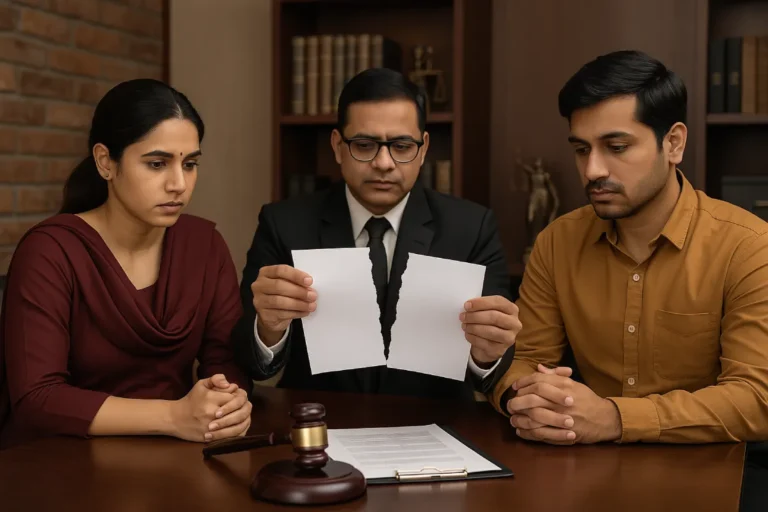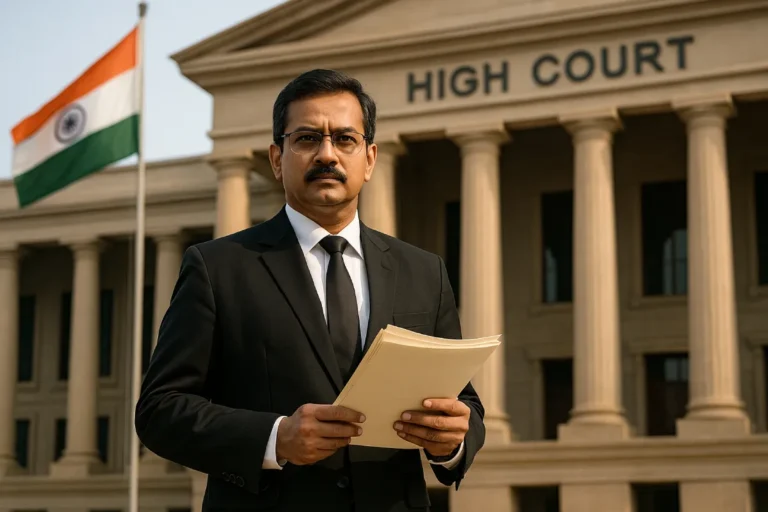Child Marriage Prohibition Act: Essential 2025 Guide
The Child Marriage Prohibition Act (also called the Child Marriage Act, 2006) prohibits marriages where the girl is under 18 or the boy is under 21; offences are cognizable and non‑bailable; such marriages are voidable at the minor’s option and void in aggravated situations; sexual intercourse with a wife under 18 is rape under the IPC after Independent Thought v. Union of India; you can report imminent or past child marriages via 1098 or the Bal Vivah Mukt Bharat portal.
What the Child Marriage Prohibition Act Does (and why it matters)
This section answers the core question up front and frames the Act’s scope, protections, and immediate steps if you suspect a child marriage.
The Child Marriage Prohibition Act (formally the Prohibition of Child Marriage Act, 2006) is India’s central law to prevent child marriages, protect affected children, and punish abettors. A “child” is a girl below 18 and a boy below 21. The Act empowers courts to annul such marriages, order maintenance and residence for the girl, protect the legitimacy and custody of children born, and penalise adults who conduct, promote, or permit such marriages. Crucially, all offences are cognizable and non‑bailable under this statute.
Read the Prohibition of Child Marriage Act, 2006 – Bare Act (IndiaCode).
See the Ministry of Women & Child Development overview and National Commission for Protection of Child Rights (NCPCR) resources.
Key Provisions of the Child Marriage Act, 2006 (PCMA)
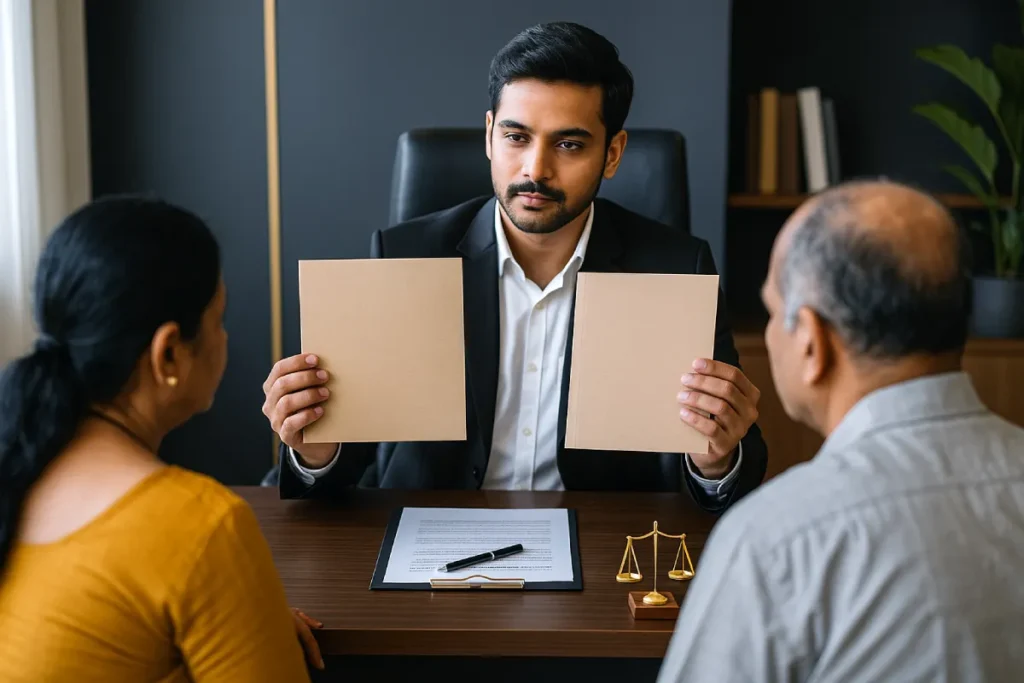
The Child Marriage Act, 2006, lays out age thresholds, void/voidable rules, penalties, injunctions to stop ceremonies, court‑ordered reliefs for the girl, and the role of Child Marriage Prohibition Officers (CMPOs).
- Age thresholds: Girl < 18; Boy < 21 (Sec. 2).
- Voidable marriages (Sec. 3): The minor can seek annulment within two years of majority.
- Void marriages (Sec. 12): Automatically void if the child is taken/enticed from a guardian, sold/trafficked, or used for an immoral purpose.
- Maintenance & residence (Sec. 4) for the girl; custody/legitimacy of children protected (Sec. 5–6).
- Injunctions (Sec. 13–14): Courts can prohibit a planned ceremony; violating an injunction renders the marriage void ab initio.
- Penalties (Sec. 9–11): Up to 2 years’ rigorous imprisonment and/or ₹1 lakh fine for adult groom, priest/officiant, and those who promote or permit the marriage; women are exempt from imprisonment under Sec. 11 proviso.
- Cognizable & non‑bailable (Sec. 15).
Further reading: PCMA – Bare Act (IndiaCode); Supreme Court of India – Judgments.
Legal Status: Voidable vs Void – and how courts treat child marriages
Most child marriages are voidable at the minor’s option; they become void in aggravated cases. Courts have repeatedly held that the PCMA prevails over conflicting personal laws.
- Default rule: Under the Child Marriage Prohibition Act, a child marriage is voidable, not automatically void. The minor may file for annulment within two years of turning 18/21.
- When void: If coercion, enticement, trafficking, or sale is involved, the marriage is void ab initio.
- Personal laws vs PCMA: High Courts (e.g., Lajja Devi v. State, Delhi HC, 2012) have clarified that PCMA prevails even if a personal law/custom suggests otherwise.
- Madras HC in T. Sivakumar v. Inspector of Police (2011): Reaffirmed the voidable nature of child marriages and the protection of minors.
Judgments overview:
- Independent Thought v. Union of India (SC, 2017) – marital intercourse with a wife under 18 is rape; PCMA/POCSO protections prevail.
- Court on its Own Motion (Lajja Devi) v. State (Delhi HC, 2012) – PCMA overrides personal law where inconsistent.
- T. Sivakumar v. Inspector of Police (Madras HC, 2011) – clarifies custody/guardianship and voidable status.
Consequences of Child Marriage (legal, educational, health)
The Consequences of Child Marriage include criminal liability, annulment exposure, maintenance orders, lost education and income, and higher maternal/infant risks. Data show persistent prevalence despite legal prohibitions.
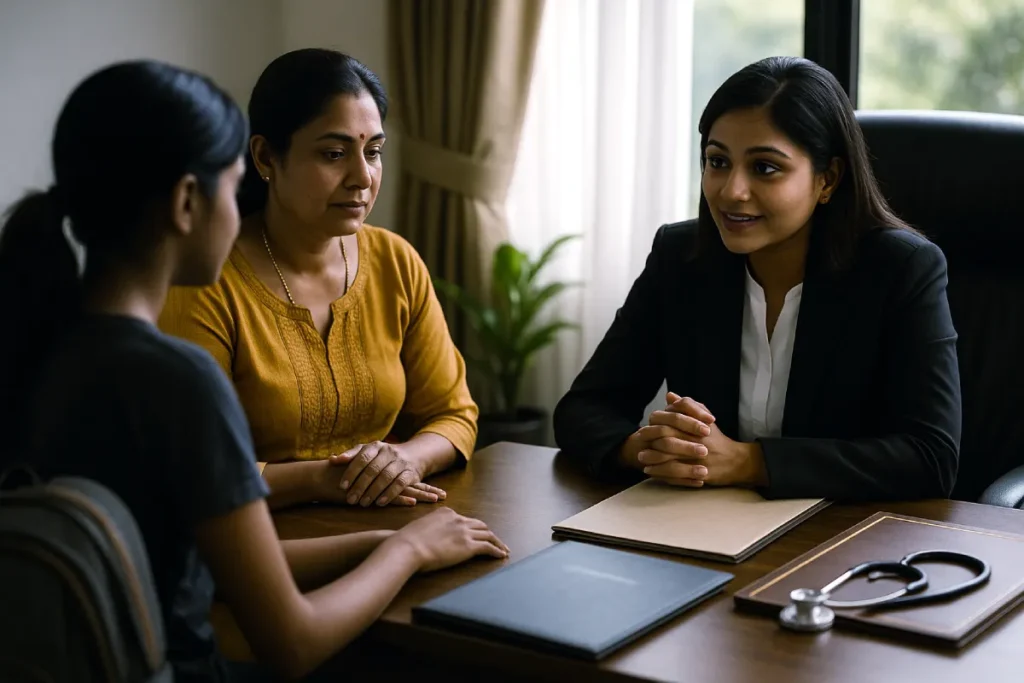
Legal consequences
- Possible arrest and prosecution of adult groom, priest/officiant, and promoters/guardians.
- Injunctions can halt ceremonies; violating an injunction renders the marriage void.
- Annulment petitions can lead to maintenance/residence for the girl and orders on custody.
Educational & economic consequences
- Early marriage correlates with school dropout, reduced skills, and diminished lifetime earnings.
- Intergenerational effects: continued poverty, curtailed autonomy, and limited access to formal work.
Health consequences
- Early pregnancy risks: higher maternal morbidity/mortality; increased neonatal complications.
- Psychosocial harms: anxiety, depression, intimate‑partner violence; civil protection remedies under the DV Act may apply – see our domestic violence rights & protection guide.
Evidence: UNICEF – Profile of Progress: Ending Child Marriage in India (2023); UNFPA – NFHS‑5 Analytical Series on Child Marriage; NFHS‑5 Official Portal; NCRB – Crime in India.
IPC & POCSO: How sexual‑offence laws interact with the Child Marriage Act, 2006
After Independent Thought (2017), sex with a wife under 18 is rape under the IPC. The POCSO Act, 2012, creates child‑friendly processes and special courts that are frequently applied in child‑marriage contexts.
- IPC Section 375 (Exception 2 struck down for <18): Husband cannot claim marital exception where the wife is under 18.
- POCSO, 2012: Defines a child as under 18; provides Special Courts, child‑friendly procedures, and stringent penalties. See our POCSO Act guide.
- Practical effect: In many prosecutions arising from child marriages, POCSO sections are invoked alongside PCMA.
Primary sources: Supreme Court Observer – Independent Thought v. Union of India Summary; Supreme Court of India – Judgments; POCSO Act, 2012 – Bare Act (IndiaCode).
Reporting & Prevention: How to stop a child marriage (before or after it happens)
You can report anonymously, seek police/CMPO intervention, and use Government portals. Document dates, locations, invitations, photos, and names to enable rapid injunctions and protection orders.
Immediate actions
- Call CHILDLINE 1098 (24×7) or report online.
- File a complaint on the national Bal Vivah Mukt Bharat portal.
- Contact the local Child Marriage Prohibition Officer (CMPO) or police; request an injunction under Sec. 13 PCMA.
What to record (if safe):
- Ceremony date/time and venue; names of parties, parents, priest/officiant.
- Any invitation cards, photos/videos, social‑media posts, or messages.
- Age proof (birth certificate, school records, Aadhaar, etc.). For registration evidence, see how to get a marriage certificate.
After the event:
- File a criminal complaint under PCMA (and POCSO, where applicable). Review your rights of arrested persons if police action is likely.
- Seek annulment (Sec. 3) and maintenance/residence (Sec. 4); apply for custody/protection as needed. In rare cases, anticipating arrest, read our anticipatory bail basics.
- For exceptional situations, courts may entertain petitions to quash an FIR; this is fact‑specific and discretionary.
Role of Child Marriage Prohibition Officers (CMPOs)
CMPOs prevent solemnization, collect evidence, advise communities, file petitions, and assist courts. They are the first specialised point of contact in many districts.
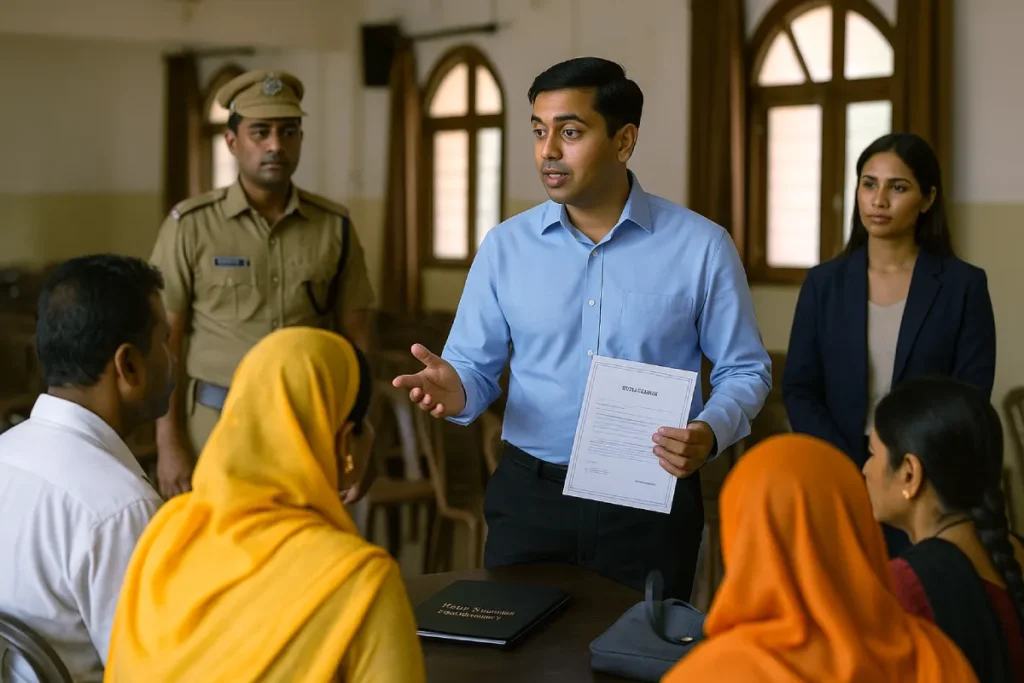
CMPO powers & duties
- Prevent imminent ceremonies; coordinate with police and Child Welfare Committees.
- Collect evidence for prosecution; assist courts on injunctions/maintenance/custody.
- Awareness & counselling: engage schools, Panchayats, and local leaders; record and report cases to the State.
(See PCMA Sec. 16–18; check your State WCD/DM website for district CMPO contacts.)
Frequently Asked Legal Questions under the Child Marriage Prohibition Act
This section simplifies recurring queries, annulment limits, effect on children born, registration, and interplay with personal laws using plain language.
Is every child marriage automatically illegal/void?
Under the Child Marriage Prohibition Act, it is prohibited, but legally treated as voidable (unless aggravated facts make it void). The minor can seek annulment within two years of majority.
What happens to children born from such a marriage?
They are deemed legitimate; courts can order custody and maintenance in the child’s best interests.
Can parents/guardians be punished?
Yes. Promoting or negligently permitting a child marriage attracts imprisonment up to 2 years and/or ₹1 lakh fine; offences are cognizable, non‑bailable.
Does the Act override personal or customary law?
Yes, where inconsistent. Courts have held PCMA protections prevail over conflicting customs/personal laws.
Do we need to register marriages to be safe?
Registration improves proof and helps enforcement, but it cannot legalise a marriage that is prohibited by age.
Is marital sex with a wife under 18 legal?
No. After Independent Thought (2017), it is rape under the IPC, irrespective of marital status.
Related legal explainers on our site
- POCSO Act explained – child‑friendly procedures and offences.
- Rights of arrested persons – what to expect during arrest/detention.
- Anticipatory bail basics – when and how courts consider pre‑arrest bail.
- Domestic violence: legal rights & protection – civil protection orders and support.
- How to get a marriage certificate – registration steps and documents.
Data & Trends: Why vigilance still matters
Despite legal reforms, data show child marriage persists in several States; targeted prevention and strict enforcement remain essential, especially around mass‑wedding seasons and school‑leaving ages.
- UNICEF (2023) estimates ~23% of young women in India were married before 18.
- NFHS‑5 shows State disparities (e.g., high prevalence in parts of Bihar, West Bengal, Assam).
- Enforcement drives (e.g., Assam’s 2023–24 crackdowns) show deterrence but also the need for social support to avoid unintended harms.
Compliance, Ethics & Plain‑Language Note
This article follows the Bar Council of India’s guidance, informational only, no guarantees or solicitations, and uses plain language without sacrificing legal precision.
- Informational purpose only; not legal advice.
- No promises of outcomes; remedies depend on facts and jurisdiction.
- Plain English with citations to official sources for verification.
Need help with a sensitive child‑marriage situation?
If you need urgent, confidential guidance on injunctions, FIRs, or annulment strategy, we can help you navigate the next steps while prioritising child safety.
We understand these situations are urgent and emotional. Our Bangalore‑based team offers confidential, 24×7 assistance on injunctions, police liaison, and annulment/custody filings under the Child Marriage Prohibition Act.
Aditya & Co. Advocates — Your Constant Legal Guardian +91 8105812404
Contact us
Learn more about our family & divorce law overview
Consultations are confidential. This page is for information; please seek personalised legal advice for your case.






